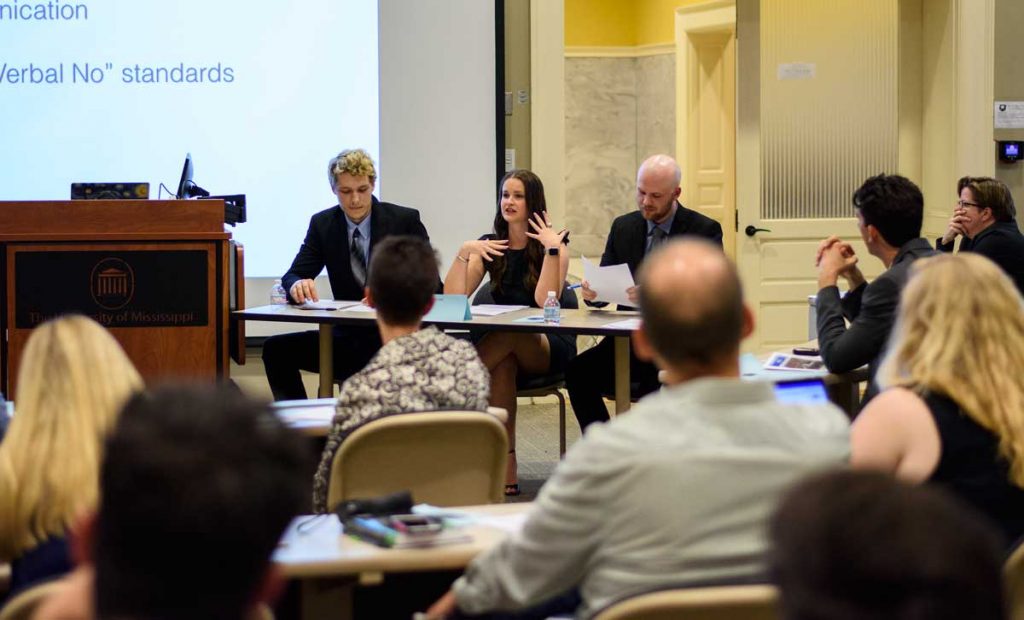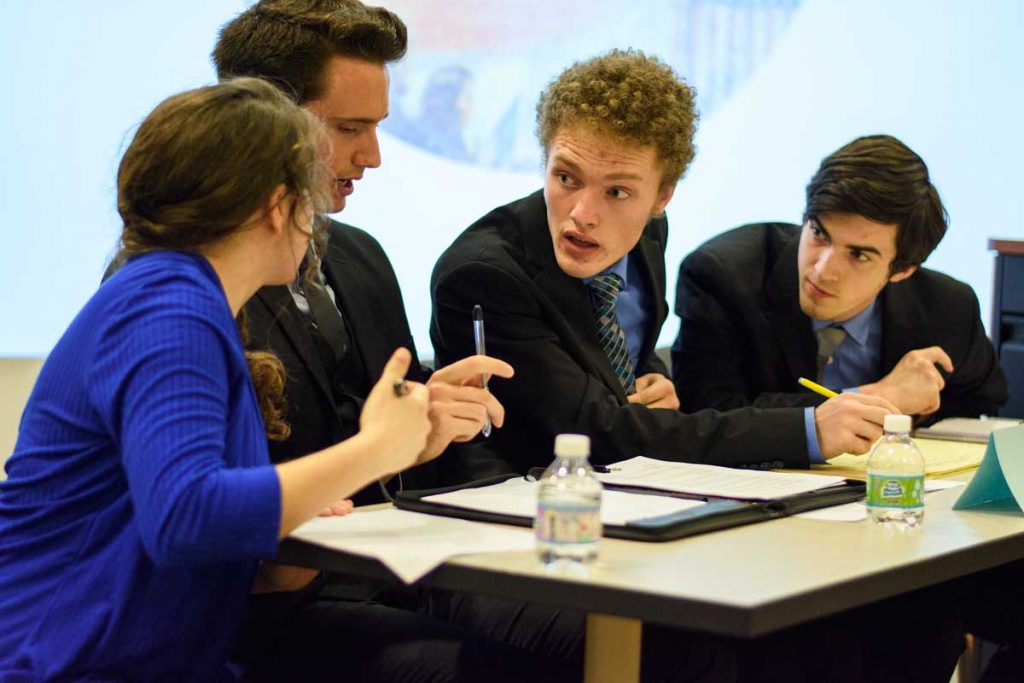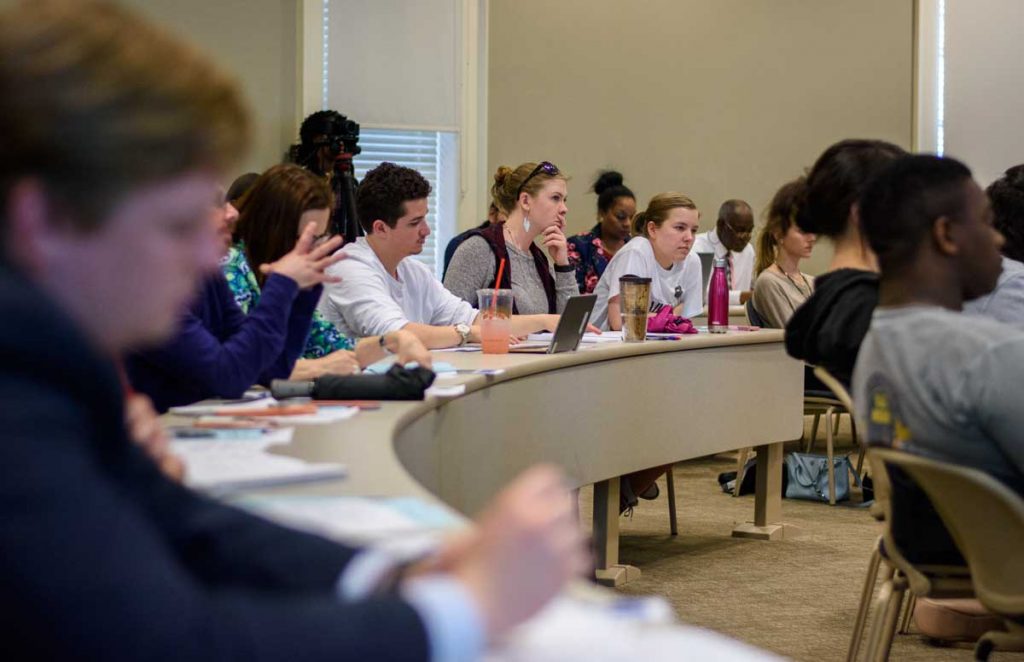The Ethics Bowl team squared off in the Great Debate on Tuesday night in Bryant Hall over consensual sex. Though the idea of whether consent is necessary was never in question, debaters did argue which should be the normal standard for sexual consent.
Seven students – five men and two women – comprised two teams: Red and Blue. The Red Team maintained that consent should be an affirmative, verbal “yes,” or what is known as “effective consent.” The Blue Team defended that consent is broader than yes or no. These team members argued that consent can be given through what is known as “contingent consent.” That view of consent extends the definition to include movements like a nod, thumbs up or other positive body language cues.

Madison Bandler, members of the UM Ethics Bowl Team, speaks for her team during The Great Debate of 2018 in Bryant Hall on Tuesday night. The topic of debate was “Should the standard of sexual consent be an affirmative verbal ‘yes’?” Photo by Christian Johnson
Blue Team member Madison Bandler is a senior biology major. Brandler said they geared the debate toward consent because it’s an important topic on all campuses right now, especially Ole Miss.
“The #MeToo movement has been incredibly effective at bringing to light the prevalence of sexual assault, and it is now our duty to create policy which helps to prevent more assaults from occurring,” Brandler said.
Samantha Priest is a senior psychology and philosophy major who served on the Red Team. She said this topic is important because it is often seen as taboo.
“I think the public oftentimes thinks that consent is a topic which is easily understood and therefore a topic that is pointless to discuss,” Priest said. “Consent is not always cut and dry. Sex is a complicated matter, and consent is an essential part of sex.”
Priest was assigned the verbal “yes” side of the argument but said she likes the side she’s on.
“It is a logical way to solve some of the issues regarding consent,” Priest said.
All seven students started preparing for this debate in February.

(FROM LEFT) Samantha Priest, Jack Lynch, Harrison Durland and Sean Johnson, members of the UM Ethics Bowl Team, discuss how to respond to a student question during The Great Debate of 2018 in Bryant Hall on Tuesday night. The topic of debate was “Should the standard of sexual consent be an affirmative verbal ‘yes’?” Photo by Christian Johnson
Vice Chancellor for Student Affairs Brandi Hephner LaBanc served as a judge for tonight’s panel. She says the students’ hard work paid off.
“It’s hard to delve into something that’s very complex and maybe out of your wheelhouse, and they did a really good job on both sides,” Hephner LaBanc said. “It’s a tough issue. It’s a nuanced issue. It’s personal.”

Bryant Hall was packed for the UM Ethics Bowl’s The Great Debate of 2018 Tuesday night. The topic of debate was “Should the standard of sexual consent be an affirmative verbal ‘yes’?” Photo by Christian Johnson
Jack Lynch, a senior English and philosophy major who served on the Red Team, said he believes debating these tough issues in a civil way is important for America’s future.
“I find that our nation would greatly benefit if civil discussions became more abundant and logic was the first resort of argumentation rather than the last,” Lynch said.






